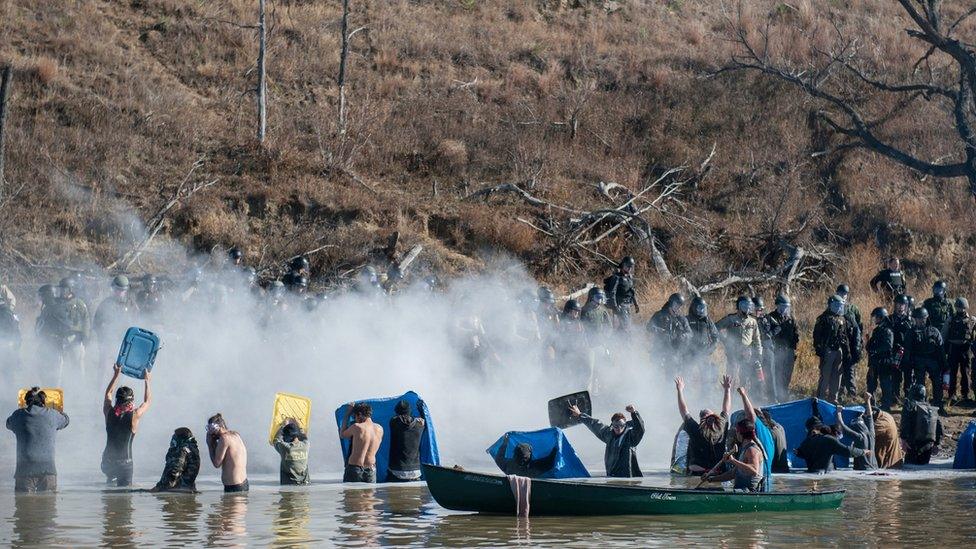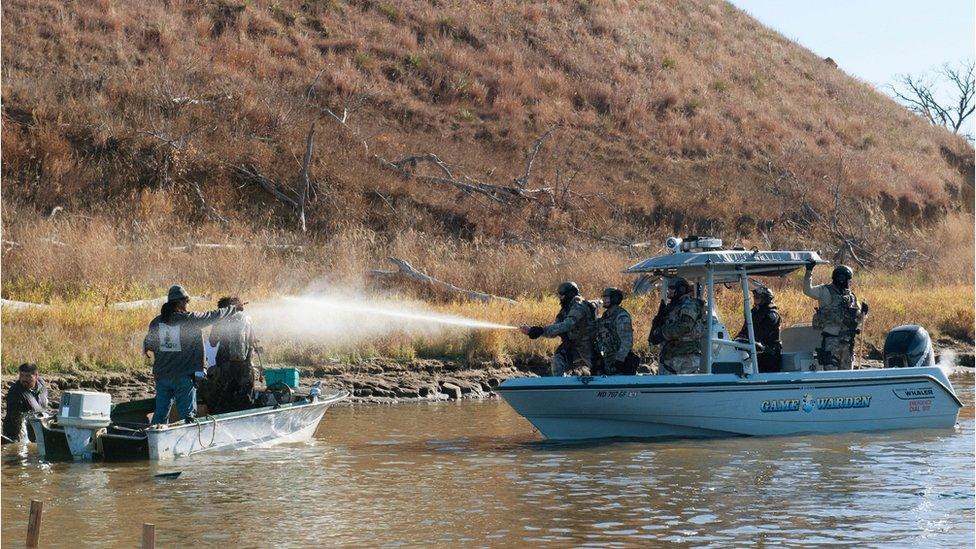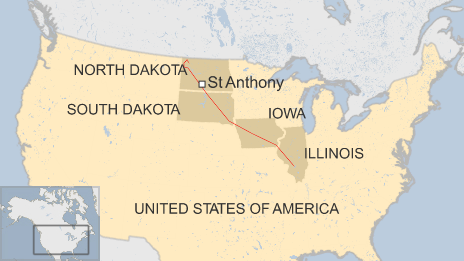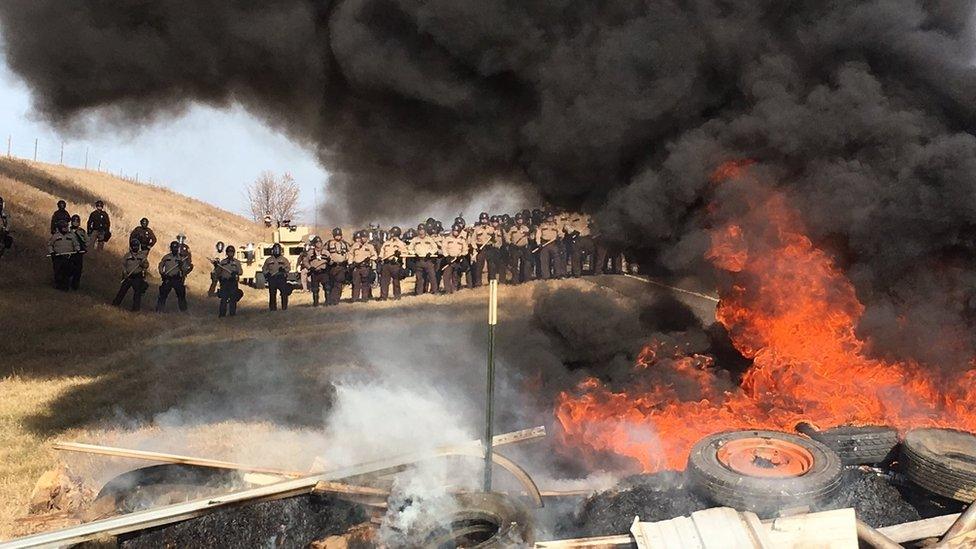Obama: Controversial Dakota pipeline could be re-routed
- Published

Police used pepper spray on protesters at the site this week
US President Barack Obama has said a controversial oil pipeline in North Dakota which has seen months of protests could be re-routed.
In an interview, the president said he would allow the conflict to play out for "several more weeks" to see if the issue could be resolved.
The controversial Dakota Access pipeline crosses an area near a Native American reservation.
Riot police armed with pepper spray clashed with protesters on Wednesday.
In an interview with NowThis News, President Obama said his administration was monitoring the clashes closely.
"My view is that there is a way for us to accommodate sacred lands of native Americans," he said, "and I think that right now the Army Corps is examining whether there are ways to re-route this pipeline."
When asked about the use of force against protesters, Mr Obama said it was a "challenging situation" and likened it to other mass protests such as the Black Lives Matter movement.

Local police prevented protesters from crossing the river to land owned by the development company
"There is an obligation for protesters to be peaceful, and there's an obligation for authorities to show restraint," he said.
"I want to make sure that as everybody is exercising their constitutional rights to be heard, that both sides are refraining from situations that might result in people being hurt."
Earlier on Wednesday, protesters had attempted to build a wooden bridge across the Cannonball river to land owned by the pipeline developer.
"The US Army Corps of Engineers has given Morton County orders to remove the bridge and arrest any individuals who cross the river for criminal trespass," the Morton County Sherriff's Department said in a statement.
Several protesters entered the water for an extended time during the clashes, leading to some being treated for hypothermia.

Protests over the $3.7bn (£2.8bn) pipeline were originally led by the Standing Rock Sioux, whose reservation lies near the pipeline route. There are fears that the construction could damage Native American artefacts or pollute local drinking water.
The protest has gathered widespread attention and social media support, prompting 1.4 million people to "check in" to the location on Facebook in solidarity.
Local police have arrested nearly 150 activists, which critics say is a disproportionate response.
On Wednesday, it emerged that some native artefacts were discovered during construction work last month, but the development company delayed reporting the find for 10 days. It could now face hefty fines from state regulators.
The discovery prompted the company to divert the pipeline route by about 50ft (15 metres).
- Published2 November 2016

- Published17 October 2016

- Published2 September 2016